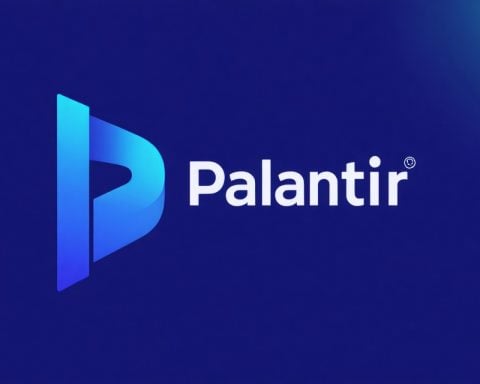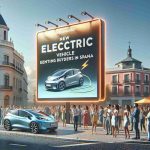- Tariffs on cars proposed by President Trump may disrupt global trade and impact automakers significantly.
- Tesla’s stock has dropped over 25% since last December, with further declines possible, raising concerns for investors.
- Uber’s CEO is considering a partnership with Tesla to utilize its autonomous fleet, indicating a shift towards collaboration in mobility services.
- Elon Musk’s Boring Company plans to build the Dubai Loop, an underground transport system, enhancing urban transit efficiency.
- SpaceX is developing its Starbase facility in Texas into a potential city, reflecting Elon Musk’s vision for significant structural transformation.
- The automotive and transportation sectors are on the brink of transformative changes that could redefine industry standards.
In the high-speed world of automobiles and innovation, dramatic shifts have left the industry on edge. President Trump has dropped a new hint, suggesting tariffs on cars might soon be reality, a move that could jar the markets and upend global trade relations. This echoes the bold style of his prior trade policies, leaving automakers bracing for impact.
Meanwhile, Tesla finds itself navigating turbulent waters. The company’s stock has experienced a sharp nosedive, plunging over 25% since reaching a peak last December. Experts are sounding alarms, warning that the dip might not hit rock bottom until another 12% drop, painting a precarious picture for investors.
As the auto giant frets, Uber’s CEO, Dara Khosrowshahi, envisions a new frontier. He shows enthusiasm for a potential alliance with Tesla, leveraging the power of Tesla’s autonomous fleet to enhance Uber’s platform. The spirit of collaboration suggests an era where rivalry makes way for synergy, hinting at an innovative shift in mobility services.
Amidst this storm, Elon Musk’s Boring Company is set to make daring strides, forging a path beneath Dubai’s sands with the planned Dubai Loop. This underground marvel promises to whisk 20,000 passengers per hour beneath the city, transforming urban transit into a subterranean ballet of efficiency and speed.
Back in Texas, Musk dreams larger still as SpaceX prepares to anchor a new era at its Starbase facility. Steps toward transforming this site into an official city are gaining momentum, mirroring Musk’s relentless drive to reshape our earthly landscapes as ambitiously as he pursues those on Mars.
In a world where change is constant, these vibrant stories remind us to buckle up. The future is not just arriving—it’s already here, and it’s rewriting the rules.
What Trade Tariffs Mean for Car Industry and Tesla’s Rollercoaster Ride Amidst Market Shifts
How-To Steps & Life Hacks: Navigating Auto Tariffs
1. Stay Informed: Regularly check reliable sources like Financial Times or Wall Street Journal for updates on tariff policies.
2. Diversify Investment: To mitigate risks associated with sudden market shifts, diversify your investment portfolio beyond just auto stocks.
3. Leverage Local Manufacturing: Automakers can reduce tariff impacts by increasing local production capabilities.
4. Advocate for Free Trade: Engage with industry groups that lobby for favorable trade policies to minimize the potential impact of tariffs.
Real-World Use Cases: Tesla and Uber’s Strategic Moves
– Tesla’s Autonomous Fleet: Integration with Uber’s platform could revolutionize ride-hailing, reducing the need for driver-operated vehicles and cutting costs.
– The Dubai Loop Project: The Boring Company’s initiative aims to facilitate rapid transit, serving as a model for urban transit solutions in congested cities globally.
Market Forecasts & Industry Trends
– Tariffs Could Reshape Markets: For automakers, tariffs might mean increased focus on domestic production and potential price hikes for consumers. The European and Asian markets could retaliate with their tariffs, impacting global sales.
– Electric Vehicles on the Rise: The push for cleaner transport solutions continues, with an expectation that electric vehicles will dominate by 2040, as projected by various market analysts.
Reviews & Comparisons: Tesla, Uber, and The Boring Company
– Tesla vs. Traditional Automakers: Tesla’s tech-forward approach continues to set it apart, but traditional automakers are rapidly catching up in the EV market with their innovations.
– Uber’s Strategic Partnerships: By exploring alliances with companies like Tesla, Uber can enhance its technological edge in the transportation network industry.
Controversies & Limitations
– Tariffs May Backfire: High tariffs could provoke trade wars, harming both U.S. automakers and global trade relations.
– Tesla’s Volatile Stock: The company’s stock fluctuations highlight investor concerns over high valuations and competition.
– Boring Company Challenges: Building infrastructure like the Dubai Loop comes with regulatory, financial, and environmental challenges.
Features, Specs & Pricing: Tesla & Uber’s Autonomous Vision
– Tesla Autopilot Features: Continuous software updates aim to achieve full autonomy, with advanced safety features and AI-driven navigation.
– Uber Pricing Model: Autonomous fleet integration could lead to reduced operational costs and dynamic pricing based on AI analysis.
Security & Sustainability
– Sustainability Initiatives: Both Tesla and Uber are committed to reducing carbon footprints—Tesla through electric vehicles and Uber by promoting shared mobility and potentially electric rideshare options.
Insights & Predictions
– Expanding Horizons: Expect to see more collaborations across tech and auto industries, pushing boundaries in autonomous and electric vehicle innovation.
Tutorials & Compatibility
– Adapting to Autonomous Systems: Users must learn to interface with new technology dynamics, from understanding Tesla’s self-driving features to interacting with a Boring Company-type transportation system.
Pros & Cons Overview
Pros:
– For Auto Manufacturers: Potential increase in local job opportunities with domestic manufacturing.
– For Consumers: Enhanced ride-hailing services with reduced waiting time and possibly lower costs in the long run.
Cons:
– For the Global Economy: Tariff-induced price hikes could lead to reduced car sales globally.
– For Investors: Volatility in Tesla stock needs cautious navigation.
Actionable Recommendations
– Invest Wisely: Closely monitor stock trends and market forecasts. Diversify and only invest in what you understand.
– Adapt & Train: Familiarize yourself with emerging automotive tech, from EVs to autonomous systems.
– Engage & Influence: Participate in discussions and forums to advocate for policies that support innovative automotive solutions.
In conclusion, as these industries evolve amidst economic and technological shifts, staying informed and adaptable can help you capitalize on the opportunities while minimizing risks.












